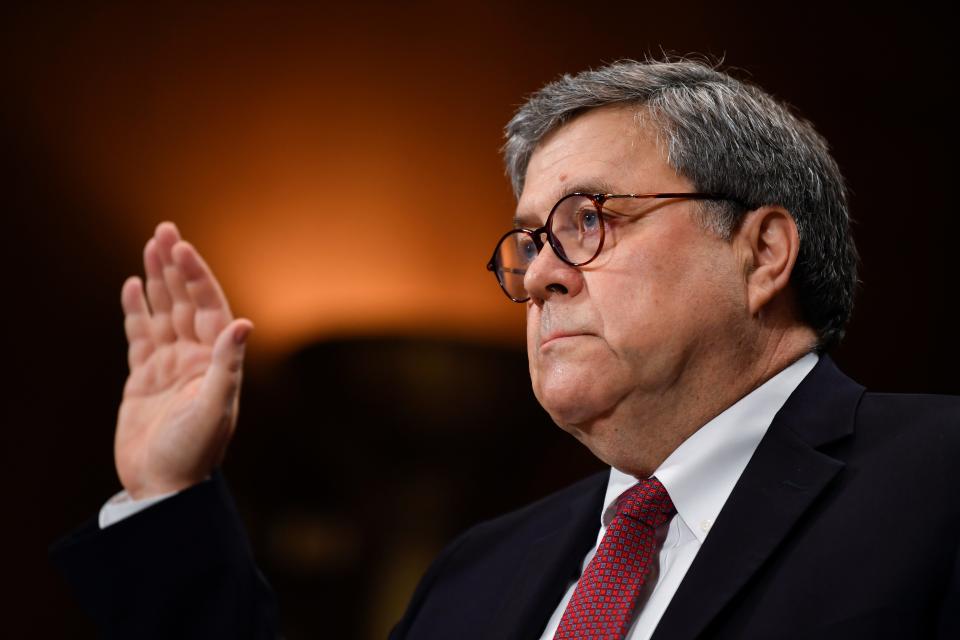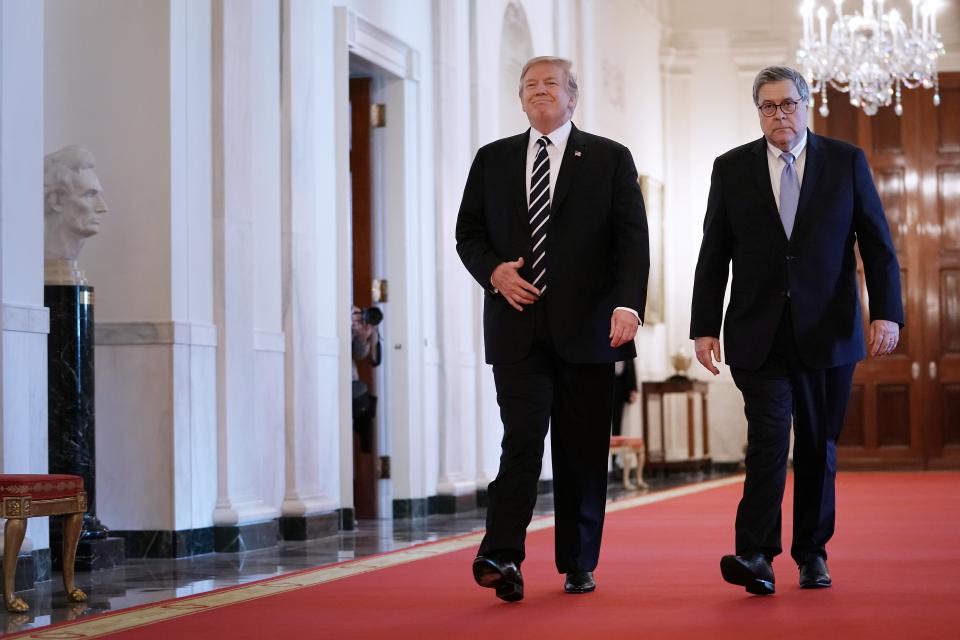AG Barr: DOJ had been drawn into 'political maelstrom'; department used as 'political weapon'
WASHINGTON – Attorney General William Barr, facing a hotly anticipated appearance before a House panel Tuesday, offered a forceful defense of his actions as the nation's chief law enforcement officer, asserting that he has acted apart from the interests of the White House while "applying a standard of justice without partisan considerations."
Even before taking office in 2019, Barr said he became "deeply troubled by what I perceived as the increasing use of the criminal justice process as a political weapon and the emergence of two separate standards of justice."
"The Department had been drawn into the political maelstrom and was being buffeted on all sides," Barr said in an opening statement prepared for delivery Tuesday to the House Judiciary Committee.
When he was asked to consider returning for a second term as attorney general (following his service in the George H.W. Bush administration), Barr said he did so because "I revere the Department and believed my independence would allow me to help steer her back to her core mission of applying one standard of justice for everyone and enforcing the law even-handedly, without partisan considerations."

Of mounting questions about favorable decisions rendered in a series of cases involving President Donald Trump and his allies, Barr said that his actions "have been my own."
"And they have been made because I believed they were right under the law and principles of justice," according to Barr's statement.
Barr's long-sought testimony comes as part of House Democrats' investigation into allegations of political interference at Justice and claims that the attorney general has turned the department into a political annex of the Trump White House.
The hearing, billed as an oversight of the Justice Department, will touch on a year's worth of grievances, from the widely criticized roll-out of the special counsel's Russia report in 2019 to the deployment of federal agents to Portland.
'What had happened was wrong': DOJ lawyers accuse agency leaders of abusing power in Roger Stone case, other probes
Unrest in Portland: Portland police detain two suspects after reported shooting near federal courthouse protest site
House Democrats are expected to lob questions from a long list of issues, including whether he mischaracterized the findings of former special counsel Robert Mueller's Russia investigation, interference on the criminal prosecutions of Trump allies, the contentious ouster of Manhattan's former U.S. attorney, and the federal agents' use of force to clear Lafayette Square of protesters in Washington D.C. ahead of a presidential photo-op, according to the House committee's counsel.
In his opening statement, Barr referred to the Russia investigation as "bogus," and that he has paid a political price for his actions since.
"Ever since I made it clear that I was going to do everything I could to get to the bottom of the grave abuses involved in the bogus “Russiagate” scandal, many of the Democrats on this Committee have attempted to discredit me by conjuring up a narrative that I am simply the President’s factotum who disposes of criminal cases according to his instructions," he said. "Judging from the letter inviting me to this hearing, that appears to be your agenda today."

Lawmakers also are expected to question Barr about recent federal officer deployments to quell rioting in Portland and in support of Operation Legend, a federal crime-fighting initiative that the Justice Department recently expanded to multiple cities amid resistance and skepticism from local officials.
The rioting and demonstrations against police brutality initially prompted by the May 25 death of George Floyd at the hands of Minneapolis police have only grown more intense since the deployment of federal officers.
While Barr said that police abuses remain rare, he said Floyd's death and others like it "strike a deep chord in the black community because they are perceived as manifestation of the deeper, lingering concern that, in encounters with police, blacks will not be treated even-handedly; they will not be given the benefit of the doubt; they will be treated with greater suspicion than a white person would be in the same circumstances."
Former US Attorney Geoffrey Berman: AG Barr pressed him to resign to make way for favored candidate
Geoffrey Berman firing: AG Barr's glowing account of NY prosecutor's work further clouds dismissal
"I think these concerns are legitimate," Barr said in the statement, though he suggests that police shouldn't bear all of the blame.
"I think it would be an oversimplification to treat the problem as rooted in some deep-seated racism generally infecting our police departments," Barr said. "It seems far more likely that the problem stems from a complex mix of factors, which can be addressed with focused attention over time."
Republicans have cast the committee's investigation as a political stunt that distracts from more pressing issues, such as the coronavirus pandemic and racial unrest. They also have defended Barr, saying his actions at the Justice Department were meant to correct the wrongs of the previous administration.
The hearing, expected to be long and contentious, follows testimony from current and former Justice Department officials who accused the agency's leadership of impropriety.
Last month, a Justice Department prosecutor said the department's leadership gave Roger Stone, a longtime friend of the president, "unprecedentedly favorable treatment" by pushing for a more lenient prison sentence against the recommendation of career prosecutors. Aaron Zelinsky told lawmakers he and the other attorneys who prosecuted the GOP operative were pressured to "cut Stone a break," or they could be fired.
Around the same time, Barr and ousted Manhattan U.S. Attorney Geoffrey Berman publicly clashed over control of one of the Justice Department's most prestigious offices that have investigated and prosecuted Trump's allies and former associates. During a chaotic weekend last month, Berman accused Barr of not being truthful after the Justice Department announced – prematurely, according to Berman – that he was leaving his post.
'What a disaster': Aggressive federal response in Portland raises legal questions
Federal deployments: Mayors see broken trust, political agenda in Trump's surge of federal officers to US cities
The weekend ended with Berman's firing.
Berman later testified that Barr repeatedly pressed him to resign to make way for Trump's desired nominee, telling him he would be fired if he refused to do so and even offering a high-ranking position within the Justice Department. During the closed-door testimony, Berman said he questioned why he was being asked to leave before a nominee is confirmed and was critical of Barr's decision to appoint an outsider as a temporary replacement, calling it "unprecedented, unnecessary and unexplained."
Berman declined to speculate on Barr's motives, but he said the attorney general's "irregular and unexplained actions" were problematic, according to a transcript of the testimony.
This article originally appeared on USA TODAY: AG Barr: DOJ drawn into 'political maelstrom'

